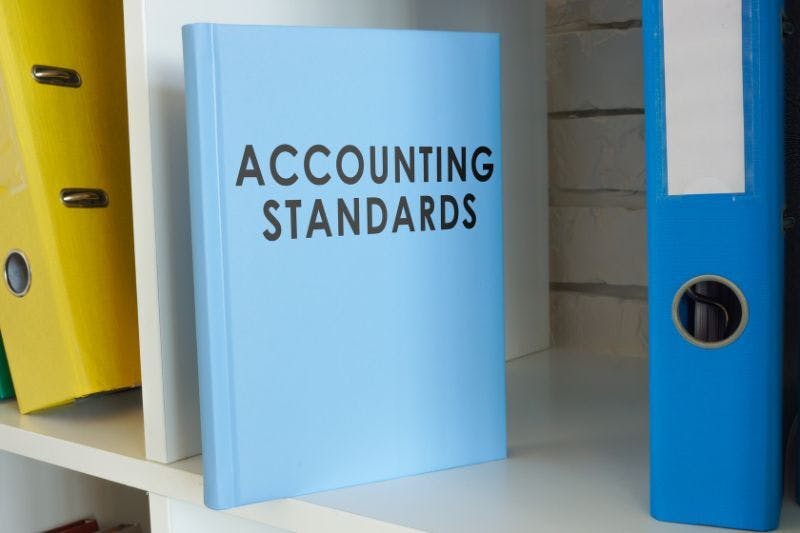
As the owner of a smaller accounting firm, I know that building a successful business is hard work.
At the start, things are exciting and challenging and you don’t mind the extra hours. You’re figuring out how to bring your product or service to your customers and you’re focused on creating something that your customers will love.
Then reality hits. Keeping your business afloat and working like a well-oiled machine requires skills that you don’t necessarily have - like financial management and taxation, or marketing and recruitment.
Not only have I experienced these challenges but it’s a common story told by my clients. Here I explore some of the common problems small business owners face and look at the effect that using an accounting firm, like Hall Accounting Company, can have on your business.
Cash flow management challenges

Small businesses often struggle with cash flow due to irregular income streams, high upfront costs, and delayed payments from customers. This can lead to the inability to cover operational costs and meet financial obligations on time.
Let’s look at some of these cash flow challenges more closely.
Inconsistent revenue streams
Maintaining a consistent income stream is a consistent struggle. Imagine the plight of a boutique store selling brand jackets. In winter the sales are higher and more predictable, while in summer the sales are much lower and fluctuate according to the needs of the customers in the local community.
Also, one brand could be a poor seller leading to a loss in income and unused store stock. Sales can also be affected by sudden fashion trends causing a welcome rise in income but also an increase cost of sales.
This point alone makes careful planning of cash flow and knowing how to do it, critically important so that a business doesn’t find itself unable to pay operating costs during ‘low season’.
High operational costs
Small businesses often have less negotiating power with suppliers and this leads to higher costs per unit. This can put a real squeeze on cash flow margins.
Inaccurate invoicing
Late payments on invoices are commonplace. When a small business doesn’t have a standardized process for creating and issuing invoices, errors can creep in which can then cause a delay in payments being received.
Even in medium-sized businesses accounting professionals are in a constant struggle to ensure that invoices are done correctly, so money can come into the business in the shortest possible time.
Overinvestment in inventory
Holding too much inventory over a long period ties up cash that could have been better used for operational costs.
Reliance on a limited number of clients
Depending heavily on a few large clients can be risky, but many small businesses do this. When one of these clients delays payment or discontinues their business, it negatively affects business operations.
Inadequate cash flow forecasting
Financial analysis involves forecasting how much money will flow in and out of the business during any given period. This is important for several reasons:
It ensures liquidity
Aids in decision-making
Helps with budgeting and planning
Identifies potential cash shortfalls
Dealing with all these problems can be overwhelming for a small business owner. Day-to-day operational issues take up time and resources and when these problems creep into the business they need to be solved efficiently and quickly, so that they don’t become a bigger problem.
Overcoming cash flow problems and more importantly, avoiding them in the future, requires a multiple-prong approach.
Need help?
When small business owners approach my firm, we sit down and discuss strategies that will combat these problems. Typical discussions go around:
Current processes
How income and expenses are recorded
Diversifying products and services to ensure a more consistent income
The reduction of unnecessary expenses
Negotiations with suppliers
The use of accounting software and forecasting tools
If you’d like our help managing your cash flow and getting your business operating smoothly and efficiently, make an appointment with my accounting team. We’d be happy to assist you with any accounting challenges that are causing your life to be harder than it needs to be.
We’ll take on the accounting so that you can get back to doing what you love!
Understanding accounting principles and systems

Image courtesy of Canva/GettyImages
Accepted Accounting Practices
Worldwide accounting standards are called GAAP (Generally Accepted Accounting Principles). These are set by the FASB (Financial Accounting Standards Board) and are the prescribed standards that all businesses must follow when logging financial transactions and developing accounting systems.
In every country, the accounting profession is heavily regulated because high standards of reporting must be maintained for financial statements and tax obligations. If you are facing financial challenges, you may be missing strategic oversight. While a full time controller might be outside of the budget for small to medium businesses, a fractional CFO can provide the guidance you need without the cost of a full-time employee.
Common accounting methods
As a small business owner you not be aware of the principles regulating accounting practices or how they affect your business. For instance, the two most used accounting methods for a small business are:
Cash basis accounting
Accrual basis accounting
One method is relatively simple and records transactions only when cash is spent or received and is more suitable for knowing how much cash is on hand day to day. The other method records income and expenses when they are earned or incurred and will include accounts payable and accounts receivable in financial statements.
One requires basic knowledge of GAAP and the other more advanced understanding. Knowing which method is correct for your business is vital because you need to set up your accounting processes accordingly.
Tracking of Expenses

Image courtesy of Canva Pro
Financial data and how it’s recorded and tracked is the concern of all accounting and finance teams. Without accurate handling of the money that goes out of the business, there will soon be many unexplained cash flow shortages.
A proper process for handling ALL expenses cannot be underemphasized. Bigger expenses like rent, utilities, taxes, salaries and loan repayments may not be a problem to keep track of, but smaller expenses that are brought using cash or by paid for by employees could fall through the cracks.
Small businesses often keep track of expenses manually which is time-consuming and can lead to human errors which gives an incomplete financial picture. Without an automated system, you will lack real-time insight into your expenses which will also affect your cash flow planning.
This is an area where small businesses can make the most gains and see the results quickly. Taking time to put even a simple process in place for diligently collecting all expense documentation and recording it immediately makes a huge difference.
Need help?
We no longer rely on manual processing of expenses and advise that our clients stop doing it as well.
There are several excellent accounting software on the market and even the smallest business will find something they can work with. The benefit of using accounting software is that you can have everything in one place and everyone who works on your accounts can have access to the same information. Also, these programs will consolidate your accounting data and produce financial reports such as an income statement, balance sheet, and cash flow statement.
At Hall Accounting Company, we use top financial tools such as Xero, QuickBooks, Shopify, Bill.com and Gusto to ensure the accurate recording of financial transactions and provide relevant financial information to our clients, at the right time.
SCHEDULE A CALL TO DISCUSS YOUR NEEDS
Bank reconciliations

Image courtesy of Canva/Elnur
Bank reconciliations are important for small businesses because they match the company's accounting records for cash or electronic transactions, to the corresponding information on a bank statement.
However, we find that bank recons can be challenging for small businesses due to the following:
Limited accounting experience and therefore the inability to do recons accurately
If a business has a high volume of transactions, bank recons can be time-consuming
Disorganized financial record-keeping can make the process more complicated and error-prone
A long lag time before the transaction appears on the bank statement
Multiple bank accounts that have to be reconciled to company records
A lack of accounting software which means the recon process has to be done manually
Mistakes with tax filing

Image courtesy of Canva/Utah778
Several tax filing problems seem to plague small business owners. The reasons for these are due to the complexity of tax laws and the confusion regarding deadlines and filing procedures. Here are the most common problems we’ve found:
Failing to file tax returns or missing the due dates
Under or overreporting of business income due to bad accounting practices or misunderstanding about what constitutes taxable income
Incorrectly classifying workers as employees when they’re contractors and vice versa
Failing to keep detailed records and receipts for expenses and deductions
Failing to claim eligible tax deductions
Claiming home office deductions without clearly understanding the eligibility criteria
Not paying eligible taxes throughout the year, as required by some business owners
This is the one area that causes business owners the most stress but it can be easily avoided by putting a few key strategies in place.
As we’ve mentioned previously in this article, it is very important to get your accounting processes on track as soon as you can. Ultimately this is one area that every business could use help with because of the complexity of tax regulations.
At Hall Accounting Company we provide our business clients with strategies that help you to minimise your tax liability and we will negotiate with the IRS on your behalf if you are dealing with unpaid taxes and penalties.
Payroll Management

Image courtesy of Canva/GettyImages
One of the primary issues faced by small business owners is the accuracy of payroll calculations. Errors in calculating wages, overtime, and deductions come from manual processes or a lack of understanding of complex payroll regulations.
These mistakes not only lead to employee dissatisfaction but can also result in legal complications and penalties for non-compliance.
Without automated systems, payroll processing can be extremely time-consuming, diverting valuable time and resources away from other critical business activities. Furthermore, the responsibility of handling payroll taxes and filings adds to the challenges of payroll management.
Calculating, withholding, and remitting the correct payroll taxes, along with timely filing of necessary reports with tax authorities, is crucial to avoid penalties and interest charges.
Not using cloud-based accounting software
Accounting technology has advanced tremendously in the last five years. What used to be complicated and intimidating is now user-friendly and easy to navigate and set up. Gone are the days of keeping financial records in files and on USB drives. With the introduction of cloud-based accounting software, all your financial data can be safely stored and easily retrieved. This includes payroll information which is protected and encrypted by the service provider.
There are a number of reasons to start using accounting software if you haven’t already done so. Here are just a few:
Electronic copies of all financial data which is kept securely and easily accessed by whoever needs to work on it
The elimination of all manual records, which can be damaged or lost
An end to manual reconciliation and cross-checking of data
The production of electronic financial reports and statements that have a high degree of accuracy because the accounting system has produced it
Making a case for hiring an accounting firm
What are your options if you’ve experienced the problems listed in this article? Well, you could plow many hours into understanding accounting principles, and upskill yourself on tax legislation. You could find yourself an adequate accounting software that produces fairly decent financial statements but that won’t necessarily free you up to do what you love and re-focus your energies on core business activities and decisions.
In fact, you could become engaged in a cycle of trial and error as you implement your plan and then find yourself dealing with other issues that you haven’t thought of.
Or you could go with Hall Accounting Company.
Running a local accounting firm has prepared me for what it takes to own and grow a business. So, not only can my firm provide you with services that will make a difference to your accounting function, but I know how to run a business and make it a success. This knowledge will be carried over to you.
As a full-service accounting firm, we’ve spent time in the trenches with our sleeves rolled up. We know how to work hard and how to succeed. That’s the kind of firm you want to support your business.
SCHEDULE A CALL TODAY to discuss your accounting needs and how we can help you overcome the problems listed in this article.
We hope to hear from you soon.
Jeremy Hall.